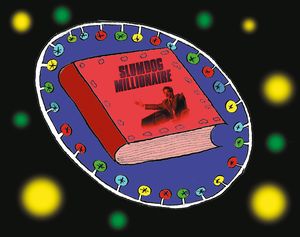The literary festival season, which is in full swing nowadays, brings to mind an old anecdote. Somewhere in the mid-2010s, I was at the Jaipur Literature Festival, diligently pushing a new book. Coming out of the authors’ lounge and heading for the venue of my panel discussion, all duded up in my writerly finery (delegate lanyard round my neck, litfest jhola on shoulder, dastkar sari pleated just right) I got separated from my minders and had the distinct honour of being gratifyingly mobbed. Not a circle. Not a knot. Not a scrum. I was mobbed by a massive, crushing, writhing mass of people. Squashed, out of breath, and a little afraid (yet secretly thrilled) at my clearly evident fame, I surrendered myself to their tumultuous demands for selfies. And then, mortifyingly, one particular young man leaned in to ask me, even as we both smiled into his phone camera, ‘Uh, what’s your name?’ Basically one person (or, perhaps, two) had recognised me and stopped for a picture, and everybody else, fuelled by Fear of Missing Out (FoMO), had quickly piled on to what they thought was a celebrity sighting. The sad truth is that we are not a nation of readers.
The figures for viewerships of films, TV, OTT, even Instagram and YouTube reels dwarf the figures for readership massively. Of course, I am biased and not fully informed, but it seems to me, that in India, perhaps, because literacy levels are low and books expensive and out of the common man’s reach, the only way a writer gets full-on celebrity status is if their book gets made into a successful film/show. And even then, the writer remains a sort-of small appendage to the movie-monster, which gets promoted to the status of what in publishing is called ‘canon’ and the actual writing fades away into obscurity. (If you think I’m overstating the case, remind yourself of the cringe-inducing time when, during a television quiz show, Anil Kapoor—star of the Oscar-winning film Slumdog Millionaire, forgot the name of writer Vikas Swarup, who wrote Q&A, the book on which the film is based.)
Original writing doesn’t get to wear the hallowed status of canon in India, simply because we do not read enough. Either because we are lazy, or busy or historically dependent on learned Brahmins curating and relating the highlights to us; we don’t bother to actually consume a book cover to cover. And that is why when a Muslim character in the film Annapoorani quoted Valmiki’s Ramayan as proof of the fact that Ram, Lakshman and Sita ate meat in the jungles during their exile, the entire nation, which has been relying on Ramanand Sagar, B.R. Chopra, random godmen, politicians and WhatsApp university for its spiritual succour, instead of the actual original epic, had a collective, misinformed meltdown and roared for the film to be banned.
If you haven’t been living under a rock recently, you would know that our prime minister has been urging all of us to light a Shree Ram Jyoti on the day of the new temple’s consecration. So if we want to be good Hindus and lead a life which is in tandem of our faith’s teachings, how about lighting the flame of scriptural knowledge in our minds by ditching the middlemen and the films, going back to the original source material, reading good, reliable translations (the Upanishads and the epics are vast, wondrous, open-minded works that welcome new interpretations and delight in contradictions) and come to an understanding of our faith ourselves? How about celebrating the Ram Mandir and the litfest season by becoming genuine literature lovers instead of selfie-taking poseurs, open our holy books and actually read them?
editor@theweek.in


